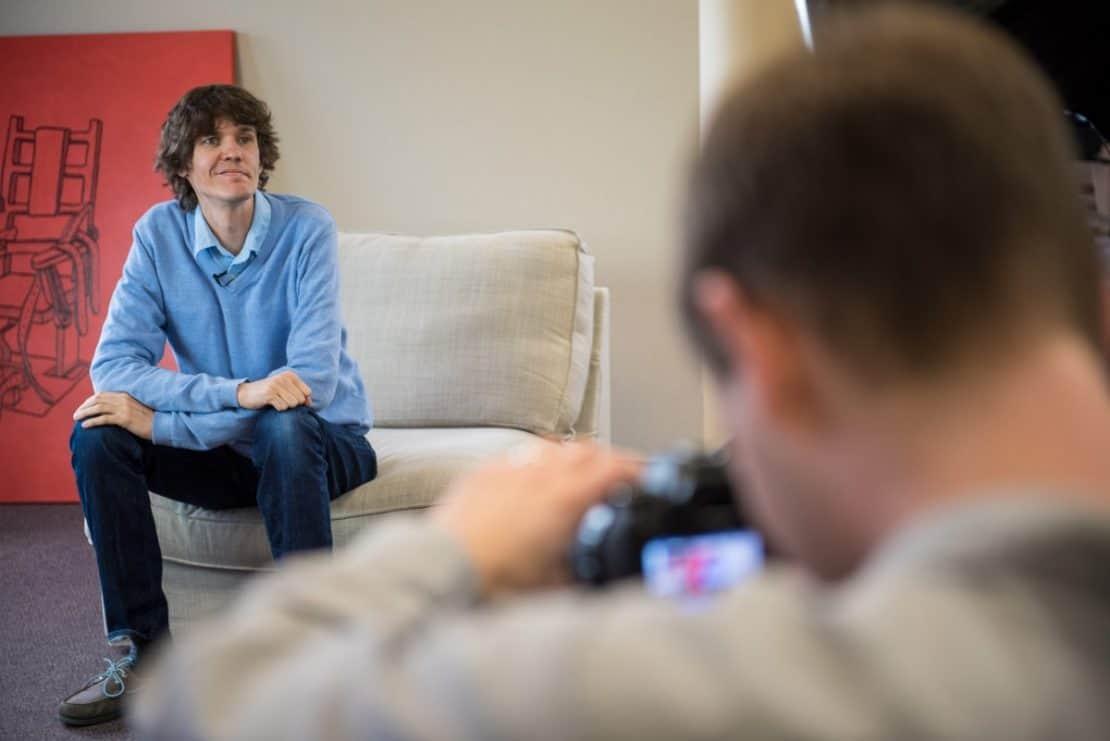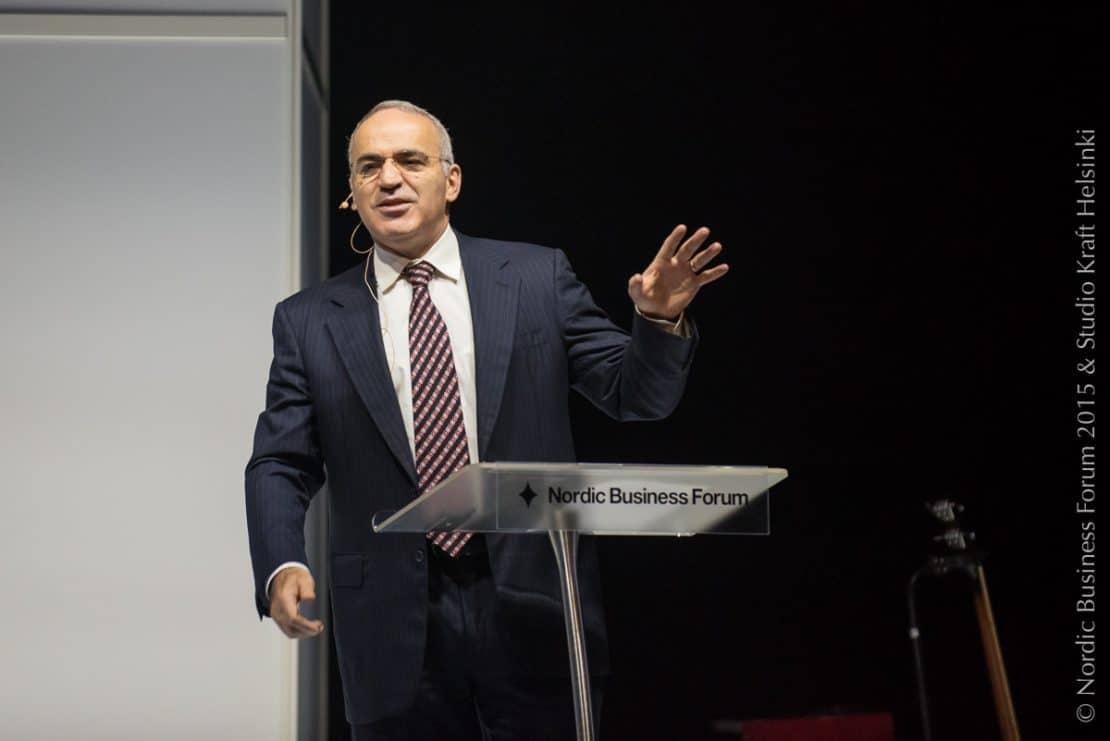13Oct2015
In 2011, the month of June was an eventful time for the Estonian Urmas Purde, as he got married, underwent brain surgery to remove a tumor, whilst at the same time co-founding a US-based software company.
When Jari Sarasvuo shows you a drawing of a sales pipeline and tells that it is worth at least eight million euros, what do you do? If you are Urmas Purde, you run with the idea. The Estonian-born Purde went on to co-found Pipedrive, a sales management software company, and now lives in Silicon Valley. His unwavering focus is now on making Pipedrive a household name in the global Customer Relationship Management (CRM) market. “It’s hard to say where exactly we got the idea to build Pipedrive but that [moment with Sarasvuo] was certainly one of them and Jari personally inspired me to think big,” Purde says.
In May 2015, Pipedrive raised $9 million in Series A funding to accelerate global expansion, with the total capital raised reaching $13.4 million, and simultaneously validating Sarasvuo’s ability to evaluate the net worth of his sketches. “There are so many things that Jari got under my skin about how to problem solve and how to think about sales. I know that he is going through difficult times right now but still all the things he said, they apply,” Purde ponders.
Rough path
Sitting in a lounge chair in the middle of the room surrounded by cameras, Purde’s path to success has been far from easy and laid back. Purde worked his way up from a newspaper salesman on the streets of Estonia to become a sales manager and then a sales trainer for ten years alongside his colleagues Timo Rein and Peep Vain, both of whom later became important figures behind Pipedrive, Rein as a Co-Founder and Vain as the first investor. They brought in three experienced developers Ragnar Sass, Martin Tajur and Martin Henk as co-founders and started to build the product based on their vision.
“Dealing with day-to-day issues with sales led us to build Pipedrive,” as Purde explains the context for their leap into entrepreneurship. In 2011, just a few months after founding Pipedrive, Purde started to have severe health issues and had to undergo a surgery to remove a tumor from his brain. “My story is like the biggest cliché ever,” laughing at his ironic quip.
After the surgery and the ordeal surrounding it, Purde, together with his partners at Pipedrive, went to AngelPad, a startup accelerator in San Francisco. “We founded our U.S. entity a couple of months before getting into an incubator here because we thought that we probably would not get funded without that. It worked out well because right before the incubator phase we got funded by angel investors.”
In addition to getting funded there was also ambitious motivation behind Pipedrive’s move to Silicon Valley. As Purde puts it: “We just sensed that the fiercest competition in CRM’s is in the United States and California, so we felt that maybe it is a great idea to be where the competition is because that is where it all happens.”
From salespeople for salespeople
In the world of phone calls, emails and meetings, salespeople are bombarded with messages. It is easy to lose track or focus. One can easily fluctuate between an efficient organization and burn out. Because of their vast experience in dealing with sales related issues, Purde and Rein realized that most of the CRM systems had been built with CEOs and sales managers in mind leaving out the actual end user, the salesperson. “Sales managers were the ones that were demanding that sales data needs to be visible. They wanted to see how many contacts you made or how many offers you sent,” Purde explains.
Before deciding to build their own CRM, Purde and Rein had had three different CRMs, the last one costing $30,000 to install. “It was ‘meant for sales’ by the way,” Purde remarks. After three or four months they noticed that somewhere using it but others were not. “I was one of those who used it randomly,” Purde says and continues, “We still had our sales pipeline on the wall with sticky notes and started to wonder why we paid forty grand for a piece of software when we are still using sticky notes to get the most important information out. We also noticed that our customers were having the same problem.”
The Pipedrive team got to the Bay Area with a clear vision to build a tool for salespeople to help them sell, not to build a CRM for CEOs and managers to pull out data. For some, the difference might sound like nothing but the Pipedrive team sees a huge difference in such an approach. Purde assuredly states: “You can actually give the salesperson more clarity. You can help him with organizing his work and make life easier for a salesperson.” Today, Pipedrive’s competitive advantage is the same as it was five years ago. “We have just been refining it.”
Lessons learned
On top of gratitude towards life as a whole, Purde has also learned a bunch of important business lessons on his way from Estonia to the West Coast of the United States. Describing himself as a former control freak, he gives an example of how far he went. “Things like measuring how much white space we should have next to our logo on a business card. I used to do that.”
Now, because of the ten hour time difference between Pipedrive’s smaller Silicon Valley office and the bigger office in Tallinn, Estonia, where the development of Pipedrive mainly happens, Purde has been forced into to adopting a more detached attitude, accepting that he is not able to control everything. “It has forced me to let others step forward and made me subconsciously hire people that are smarter than I am. Being a founder doesn’t mean that you can have your say on everything. That is not how you build a company.”
When it comes to hiring decisions, Purde has a guideline to each and everyone seeking to build a team that really delivers: “You need to hire a person who’s opinion is important to you.”
What he has learned from his experiences of trusting in others is that: “If someone tells me that something is a bad idea, I usually listen to him very carefully.”
Big ambitions
Even when Pipedrive was taking its first steps, Purde never had the feeling of being in a startup. “We were so determined that we were going to change the CRM business globally. There was such a huge amount of determination inside us that we never had the philosophy of ‘trying’ like in startups,” Purde explains, putting into words why they felt what they were doing was different.
The hunger for life and business has led Purde to think even bigger than before. What he wants to see is Pipedrive become a household name globally. In reality, the vision is much more concrete. What Purde means is he wants to establish a position so strong that the brand of Pipedrive is an automatic association in people’s minds. “When you think about sales the next thing should be to think about Pipedrive!”
Pipedrive is thriving amongst the small and ‘lean’ companies where the concept has caught fire, and today the company has reached over 11 thousand paying customers – and is still growing.
[sam id=”4″ codes=”true”]

 by:
by: 
